Call for Abstract
Scientific Program
International Conference on Internal Medicine and Hospital Medicine , will be organized around the theme “Crossing Frontiers In The Field of Internal Medicine”
Internal Medicine and Hospital Medicine 2019 is comprised of 27 tracks and 254 sessions designed to offer comprehensive sessions that address current issues in Internal Medicine and Hospital Medicine 2019.
Submit your abstract to any of the mentioned tracks. All related abstracts are accepted.
Register now for the conference by choosing an appropriate package suitable to you.
Telemedicine is exchange of medical information from one site to another via electronic communications to improve the patient’s clinical health status. It basically includes growing variety of applications and the services using two-way videos, emails, smart phones, wireless tools and the other forms of telecommunications technology. Starting from past 40 years with demonstrations of hospitals extending care to the patients in remote areas, use of telemedicine has spread outrageously and is now becoming the integral part of the on-going operations of hospitals, specialty departments, home health agencies, private physician offices as well as consumer’s homes and workplaces. Products and services which are mainly related to telemedicine are often part of a larger investment done by healthcare institutions in either information technology or the delivery of clinical care.
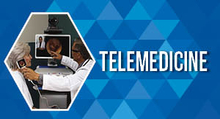
- Track 1-1Patient referral services in telemedicine
- Track 1-2Remote patient monitoring
- Track 1-3Patient referral services in telemedicine
- Track 1-4Medical education
- Track 1-5Cost effectiveness
- Track 1-6Telemedicine and quality of care
- Track 1-7Corporate wellness and telemedicine
Epidemiology is the study of the patterns and causes, effects of health and disease conditions in defined populations. Epidemiology is the cornerstone of public health, and shapes policy decisions and evidence based practice by identifying risk factors for disease and targets for preventive healthcare. Epidemiologists help with study design, collection, and statistical analysis of data, and interpretation and dissemination of results (including peer review and occasional systematic review). Epidemiology has helped develop methodology used in clinical research, public health studies, and, to a lesser extent, basic research in the biological sciences
Major areas of epidemiological study include disease aetiology, transmission, outbreak investigation, disease surveillance and screening, biomonitoring, and comparisons of treatment effects such as in clinical trials. Epidemiologists rely on other scientific disciplines like biology to better understand disease processes, statistics to make efficient use of the data and draw appropriate conclusions, social sciences to better understand proximate and distal causes, and engineering for exposure assessment.
In the late 20th century, with advancement of biomedical sciences, a number of molecular markers in blood, other bio specimens and environment were identified as predictors of development or risk of a certain disease. The Greek physician Hippocrates, known as the father of medicine, sought logic to sickness; he is the first person known to have examined the relationships between the occurrence of disease and environmental influences. He coined the terms endemic (for diseases usually found in some places but not in others) and epidemic (for diseases that are seen at some times but not others).
The epidemic breakthrough Zika virus is transmitted by Aedes mosquitoes .People with Zika virus disease usually have a mild fever, and a skin rash. A strong link between Zika virus and microcephaly is suspected and currently being investigated. Microcephaly is a condition where a baby is born with a small head or the head stops growing after birth. Babies born with microcephaly may develop convulsions and suffer physical and learning disabilities as they grow older.
Zika virus is an emerging mosquito-borne virus that was first identified in Uganda in 1947 in rhesus monkeys through a monitoring network of sylvatic yellow fever. It was subsequently identified in humans in 1952 in Uganda and the United Republic of Tanzania. Outbreaks of Zika virus disease have been recorded in Africa, the Americas, Asia and the Pacific.
- Track 2-1Avian influenza
- Track 2-2Cholera
- Track 2-3Coronaviruses (MERS-CoV, SARS)
- Track 2-4Emerging diseases (e.g. nodding disease)
- Track 2-5Ebola virus disease
- Track 2-6Hendra virus infection
- Track 2-7Influenza (seasonal, pandemic)
- Track 2-8Leptospirosis
- Track 2-9Meningitis
- Track 2-10Nipah virus infection
- Track 2-11Plague
- Track 2-12Rift Valley fever
- Track 2-13Tularaemia
- Track 2-14Viral haemorrhagic fevers (Ebola, Marburg, Lassa, Crimean-Congo haemorrhagic fever, etc.)
- Track 2-15Yellow fever
Physicians with special knowledge in sports medicine, is responsible for continuous care in the field of sports medicine, not only for enhancement of health and fitness, but also for prevention of injury and illness. Knowledge about special areas of medicine such as exercise physiology, biomechanics, nutrition, psychology, physical rehabilitation, epidemiology, physical evaluation, injuries (treatment and prevention), and the role of exercise in promoting a healthy lifestyle are essential to the practice of sports medicine.
- Track 3-1Physical evaluation
- Track 3-2Exercise physiology
- Track 3-3Biomechanics
- Track 3-4Injuries (treatment and prevention)
- Track 3-5Nutrition
- Track 3-6Exercise physiology
- Track 3-7Psychology
- Track 3-8Physical rehabilitation
- Track 3-9Injuries (treatment and prevention)
ICD has traditionally grouped diseases by aetiology and by affected organ system. For ICD¬11 the creation of a new chapter for multisystem disorders has been proposed. The following text sets out the rationale for and the possible scope of a multisystem disorders chapter. The concept of multisystem disorders is not new, however the meaning of “multisystem” as used in the literature is largely implicit and rarely defined explicitly except for case definitions of the CDC, and a mention in Webster’s Medical Dictionary. There is an important group of significant disorders which have varied manifestations and can affect so many organs that it is not possible to tie them to a single predominant organ system. Examples include Systemic lupus erythematosus, Dermatopolymyositis, Behçet disease, Multiple Sclerosis, Parkinson ’s disease, Polyarteritis nodosa, Sarcoidosis, Wegener granulomatosis, Mitochondrial disorders, Heredofamilial and developmental disorders.
- Track 4-1Systemic Lupus Erythematosus
- Track 4-2Dermatopolymyositis
- Track 4-3Behçet Disease
- Track 4-4Multiple Sclerosis
- Track 4-5Parkinson’s Disease
- Track 4-6Polyarteritis Nodosa
- Track 4-7Sarcoidosis
- Track 4-8Wegener Granulomatosis
- Track 4-9Mitochondrial Disorders
- Track 4-10Heredofamilial and Developmental Disorders
Clinical trials are observations or experiments done in clinical research. It includes biomedical or behavioral research studies on human participants to answer specific questions about treatments such as novel vaccines, drugs, dietary choices, dietary supplements, and medical devices. It generates data on efficacy and safety. Clinical trials are conducted only after they receive approval from the ethics committee in the country. These authorities are responsible for benefit or risk ratio of trial and the approval does not mean the therapy is safe; it is that only the trial may be conducted. The cost of a trial is dependent on a number of factors. The sponsor for clinical trials may be a pharmaceutical company or government organization or medical device company. There are certain functions which are necessary to the trial include lab work and monitoring, managed by central laboratory or contract research organization.
- Track 5-1Treatment Research
- Track 5-2Prevention Research
- Track 5-3Diagnostic Research
- Track 5-4Screening Research
Oncology is a branch of medicine dealing with the prevention, diagnosis and treatment of cancer. The oncologist is a medical professional who practices oncology. There are three components which have improved survival in cancer:
- Prevention - This is by reduction of risk factors like tobacco and alcohol consumption.
- Early diagnosis - Screening of common cancers and comprehensive diagnosis and staging
- Treatment - Multimodality management by discussion in tumor board and treatment in a comprehensive cancer center.
Cancers are managed by attending multi-disciplinary cancer conferences where the surgical oncologist, pathologist, medical oncologist, organ specific oncologists meet to find possible management for individual patient considering the social, emotional, physical, psychological and financial status of patients.
- Track 6-1Oncology Nursing
- Track 6-2Hematology
- Track 6-3Brain Cancer
- Track 6-4Breast Cancer
- Track 6-5Palliative Care
Nephrology is a branch of medicine and pediatrics that concerns itself with the kidneys. It deals with the study of normal kidney function and kidney problems, the preservation of kidney health, and the treatment of kidney problems, from diet and medication to renal replacement therapy. Systemic conditions such as autoimmune disease and diabetes affect the kidneys and systemic problem such has hypertension occurs as a result of kidney problems are studied in nephrology.
- Track 7-1Kidney Disease
- Track 7-2Dialysis
- Track 7-3End-Stage Renal Disease(ESRD)
- Track 7-4Hypertension
Intensive care medicine is a branch of medicine board with the diagnosis and administration of life-threatening disease cases requiring organ support and invasive auditing. Patients requiring intensive care may compel support for instability, acute renal failure, respiratory compromise, lethal cardiac arrhythmias or the increasing effects of multiple organ failure, more frequently referred to now as multiple organ dysfunction syndrome. They may also be introduced for invasive auditing, such like the crucial hours after major surgery when allow too unstable to transfer to a less intensively auditor unit. Intensive care is usually only offered to those whose condition is potentially reversible and who have a good chance of surviving with intensive care support. A prime requirement for admission to an intensive care unit (ICU) is that the underlying case can be defeated. Critical care medicine is a relatively new but increasingly important medical specialty. Physicians with training in critical care medicine are referred to as intensivists.
- Track 8-1Unstable hypertension and hypotension
- Track 8-2Respiratory problems in critical care
- Track 8-3Acute renal failure
- Track 8-4Cardiac arrhythmias
- Track 8-5Multi organ dysfunction syndrome
Nursing Profession is related to those who are engaged in Clinical care, Teaching, Research, in the field of Hospital medicine and Nursing is like Nurse Practitioners, Academic and Healthcare professionals can share their research.
- Track 9-1Immunology
- Track 9-2Pediatrics
- Track 9-3Dermatology
- Track 9-4Ophthalmology
- Track 9-5Psychiatry
- Track 9-6Haematology
- Track 9-7Orthopaedics
- Track 9-8Oncology
- Track 9-9Gynaecology/Obstetrics
- Track 9-10Nephrology
- Track 9-11Cardiology
- Track 9-12Rheumatology
- Track 9-13Critical Care
- Track 9-14Pulmonology
- Track 9-15Gastroenterology
- Track 9-16Infectious Diseases
- Track 9-17Geriatric Medicine
- Track 9-18Endocrinology
- Track 9-19Neurology
Healthcare mainly deals with the maintenance or improvement of health via the diagnosis, treatment, and prevention of disease, illness, injury, and other physical and mental impairments in human beings. The quantity and quality of many healthcare systems are improved through the results of science, such as advanced through the medical model of health which focuses on the eradication of illness through diagnosis and effective treatment.
- Track 10-1Health care research
- Track 10-2Health information technology
- Track 10-3Health care financing
- Track 10-4Health care administration
Primary psychological care is the application of psychological knowledge and principles to common physical and mental health problems experienced by patients and their families throughout the life span and presented in primary care. This session will involve all the grounds of the physiological disorders dealing with healthcare system.
- Track 11-1Anxiety
- Track 11-2Depression
- Track 11-3Stress
- Track 11-4Emotional Health
- Track 11-5Addictions
- Track 11-6Attention Deficit or Hyperactivity Disorder
Internal Medicine physicians encounter plenty of female patients dealing with disease and disorders related to their reproductive systems and its endocrinology. Education of its evaluation, examination, diagnosis and, management of basic gynaecological conditions will significantly enhance the internist’s ability to diagnose, treat a broader scope of patients. This session will cover all the areas off the gynaecology and obstetrics
- Track 12-1Genital tract infections
- Track 12-2Breast cancer
- Track 12-3Benign tumours
- Track 12-4Abnormal uterine bleeding
- Track 12-5Gynaecological endocrinology
- Track 12-6Acute and chronic pelvic pain, including endometriosis
- Track 12-7Hormone replacement therapy
- Track 12-8Cervical cancer
- Track 12-9Vulvar and vaginal cancer
- Track 12-10Uterine cancer
- Track 12-11Ovarian cancer
- Track 12-12Uterine cancer
- Track 12-13Urinary incontinence
- Track 12-14Sexually transmitted diseases in women
- Track 12-15Osteoporosis
Study of the diagnosis and treatment of the diseases and disorders related to the children is paediatrics. Parents are usually committed in providing every advantage possible to the children in their families, and to ensuring that they are healthy and have the opportunities that they need to fulfil their potential. Highlights of this session will revolve around all the possible aspects of paediatrics.
- Track 13-1Paediatric Mental Health and Psychology
- Track 13-2Paediatric Emergencies and Trauma Treatment
- Track 13-3Gastrointestinal and Urogenital Complications in Paediatrics
- Track 13-4Paediatric Neurology and Research
- Track 13-5Paediatric Haematology and Oncology
- Track 13-6Preterm birth Complications and Neonatal Intensive Care
- Track 13-7Paediatric nutrition
In medical profession and Healthcare system, a case report is a detailed report of the patient’s symptoms, signs, diagnosis, treatment, and follow-up. It mainly contains a demographic profile of the patient, but usually describes an unusual or novel occurrence. Some of these case reports also contain a literature review of others previously reported diseases or disorders. Case reports have useful roles in medical research and evidence-based medicine which lead to the discovery and possible treatment of the outrageous and deadly diseases. They also help the researchers to understand the clinical spectrum of the rare disease, as well as unusual presentations of common disease. The case report can detail many different aspects of patient’s medical.
- Track 14-1Oncology case reports
- Track 14-2Cardiology case reports
- Track 14-3Nephrology case reports
- Track 14-4Urology case reports
- Track 14-5Pulmonology case reports
- Track 14-6Geriatrics case reports
- Track 14-7Endocrinology case reports
- Track 14-8Intensive care medicine case reports
- Track 14-9Pneumonia case reports
- Track 14-10Asthma case reports
- Track 14-11Orthopedic case reports
Primary care is a type of healthcare that is given by the healthcare provider as first contact, principal point of continuing care for the patient within a health care system, and coordinates with other specialist care. Primary care physician most commonly provides the Healthcare to the patients. Physicians specializing in internal medicine are called internist.
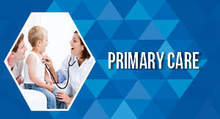
The WHO attributes that, provision of essential primary care as an integral component of an inclusive Healthcare system. It mainly involves vast scope of healthcare, including patients of all the ages, patients of all socioeconomic and geographic origins and the patients seeking to maintain optimal health, patients with all manner of acute and chronic physical, mental and social health issues, including multiple chronic diseases. Most common chronic diseases that are usually treated in primary care are hypertension, angina, diabetes, asthma, COPD, orthopaedic, depression and anxiety, back pain, arthritis or thyroid dysfunction. It also includes many basic maternal and child health care services, such as family planning services and vaccinations.
- Track 15-1Rheumatology in internal medicine
- Track 15-2Endocrinology in internal medicine
- Track 15-3Medical oncology in internal medicine
- Track 15-4Haematology in internal medicine
- Track 15-5Gastroenterology in internal medicine
- Track 15-6Pulmonary disease in internal medicine
- Track 15-7Nephrology in internal medicine
- Track 15-8Cardiovascular disease in internal medicine
- Track 15-9Dermatology in internal medicine
- Track 15-10Neurology in internal medicine
The cost-effective secure use of information and communication technology in support of the healthcare, health surveillance and health education, knowledge and research is e-Medicine.
Now a day’s technological innovation continues to grow, as change in all the industries is taking place. In healthcare, the technology is prominently playing a role in almost all processes, from the patient registration to data monitoring, from lab tests to the self-care tools. Devices and wearable’s like smartphones, tablets, etc. are starting to replace the conventional monitoring and recording systems, and people are now given option for undergoing a full consultation in the privacy of their own homes. Technological advancements in healthcare have contributed to services being taken out of the confined walls of the hospital and integrating them with user-friendly, accessible devices which emerged in the healthcare a day-to-day boon.
- Track 16-1Biotechnology in Health Care
- Track 16-2Telemedicine
- Track 16-3M Health and Portal Technology
- Track 16-4Bioinformatics in Health Care System
- Track 16-5EMR and Health Informatics
- Track 16-6Clinical Patient Management System
Clinical pharmacy major branch of Pharmacy in which the pharmacists provide patient’s care that leads to the optimum use of medication and promotes health, wellness, and disease prevention. Clinical pharmacist’s deals with patients in all the health care settings but the clinical pharmacy movement initially began inside hospitals and clinics. They often collaborate with the physicians and other healthcare professionals to provide optimum care to patients. They also optimizes the outcomes of internal medicine patients by providing evidence-based, patient- centred medication therapy. This scientific session will mainly focus on Research in Health & Medicine, Radiopharmaceuticals, Nanotechnology, Hospital Pharmacy, Drugs and Regulations, Genetics, Genetic Engineering and Biomedical Engineering, Pharmacological Sciences, Pharmacognosy, Pharmaceutical Chemistry and Phytochemistry, Bio-Pharmaceutics and Pre-formulation Studies
- Track 17-1Research in Health & Medicine
- Track 17-2Radiopharmaceuticals
- Track 17-3Nanotechnology
- Track 17-4Hospital Pharmacy, Drugs and Regulations
- Track 17-5Genetic Engineering and Biomedical Engineering
- Track 17-6Pharmacological Sciences
- Track 17-7Pharmacognosy, Pharmaceutical Chemistry and Phytochemistry
- Track 17-8Bio-Pharmaceutics
Sleep medicine is the medical specialty that deals with the diagnosis and therapy of sleep disturbances and disorders. Disorders and disturbances of sleep are seen and have significant consequences for affected individuals as well as the economic and other consequences for society research studies have shown that, the major cause (31%) of heavy truck crashes is fatigue related with drugs and alcohol as the number two cause (29%). Sleep deprivation is the lack of quality of sleep which projects negative impact on your energy, emotional balance, and the health. Other the that those who are suffering from regular sleeping problems often have many undetected medical or mental health problem, be it is minor or serious.
- Track 18-1Sleep disturbances and accidents
- Track 18-2lack of sleep and cognitive process
- Track 18-3Sleep deprivation and serious health problems
- Track 18-4Depression
- Track 18-5Skin aging
- Track 18-6Weight gain
- Track 18-7Weight loss
Geriatrics is one of the internal medicine’s specializations. It differs from the standard adult medicine because it focuses on special needs of elderly person. Aged body physiologically differs from the younger adult body, and during old age, various organ systems functions are declined and becomes manifest. Health issues from past and lifestyle choices produce a different constellation of the disease and symptoms in different people. The appearance of these symptoms depends on remaining healthy reserves in the organs.
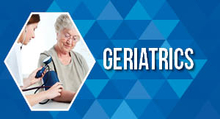
- Track 19-1Geriatric dentistry
- Track 19-2Cardio geriatrics
- Track 19-3Geriatric dermatology
- Track 19-4Geriatric neurology
- Track 19-5Geriatric nephrology
- Track 19-6Geriatric oncology
- Track 19-7Geriatric psychiatry
- Track 19-8Geriatric rheumatology
- Track 19-9Geriatric rehabilitation
Medical Oncology is the specialised branch in internal medicine, medical oncologist is the specialist in treating cancer with the chemotherapy (use of drugs to kill cancer cells, by letting them lose their ability to grow and divide) or other medications, such as targeted therapy and oral (in pill form) chemotherapy are also used to treat cancer.
- Track 20-1Lung cancer
- Track 20-2Stomach cancer
- Track 20-3Bladder cancer
- Track 20-4Colorectal cancer
- Track 20-5Breast Cancer
- Track 20-6Oral Cancer
- Track 20-7Leukemia
- Track 20-8Blood cancer
- Track 20-9Bone cancer
Immunization is referred as a process in which the person is made immune or resistant to an infectious disease, typically by the administration of a vaccine. A vaccine basically stimulates the body’s own immune system to protect the person against subsequent infection or disease. Vaccination is the administration of attenuated antigenic material (a vaccine) that stimulates the individual's immune system to develop adaptive immunity to a pathogen.
Intensive care medicine and the critical care medicine are the branches of medicine that are concerned with diagnosis and management of life-threatening conditions requiring sophisticated organ support and the invasive monitoring.
- Track 21-1Flu shots facts and side effects
- Track 21-2Tetanus, diphtheria, pertussis Td/Tdap
- Track 21-3Pneumococcal vaccine
- Track 21-4Immunization and chronic disease
- Track 21-5Shingles
- Track 21-6Meningococcal
- Track 21-7MMR, Measles, Mumps, Rubella
- Track 21-8Human papilloma virus
- Track 21-9Chickenpox varicella
- Track 21-10Hepatitis A
- Track 21-11Hepatitis B
- Track 21-12Hb hoemophilus influenza type b
- Track 21-13Chronic disease and vaccination
Adolescent medicine is one of the medical subspecialty that deals with the care of the patient who is in adolescent period of development, generally ranging from last years of school until graduation from the high school. Many doctors dealing with this subspecialty treat young adults attending college at area clinics, in the subfield of college health. Major health issues related to adolescent medicine will be discussed in our scientific sessions.
- Track 22-1Diabetes
- Track 22-2HIV
- Track 22-3Asthma
- Track 22-4Neurological problems
- Track 22-5Eating disorders
- Track 22-6Mental illnesses
- Track 22-7Menstrual disorders
- Track 22-8Infectious diseases
- Track 22-9Alcohol and drug abuse
- Track 22-10Malnutrition and Obesity
- Track 22-11Exercise and Nutrition
- Track 22-12Tobacco use
Infectious disease is one of the internal medicines subspecialty which deals with the diagnosis and treatment of communicable diseases of all types, in all organs, and in patients of all ages. This requires a special understanding of the microbiology, prevention, and management of disorders caused by viral, bacterial, fungal, and parasitic infections, including appropriate use of antimicrobial agents, vaccines, and all other immune biological agents like environmental, occupational, and host factors that eventually predispose to infection; and all other basic principles of epidemiology and transmission of infection. Internal medicine session will include all the topics which are concerned with different medicinal therapies used for the treatment and diagnosis of the disorders and diseases caused by infectious agents like bacteria, fungi or viruses.
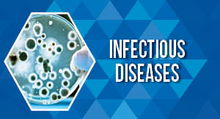
- Track 23-1Viral infections
- Track 23-2Viral infections
- Track 23-3Bacterial infections
- Track 23-4Fungal infections
- Track 23-5Parasitic infections
- Track 23-6Prevention
- Track 23-7Management of disorder
Older adult’s age comes with ever-greater risks for health issues. They remain at a greater risk of contracting disease due to a number of factors. These factors majorly involve a weakened immune system, decrease in the overall activity and use of the medications that impact body’s immune system response. Disease prevention should be the primary motive of any healthcare strategy for older adults, with the ultimate goal of postponing dependency for as long as possible.
Most of the older adult diseases can be prevented through a healthy lifestyle, including diet, exercise and lack of risky activity.
Early detection of certain diseases reduces the possibility of disease encounter whereas the success rates of treatment and care increases. Preventative measures are taken to resist any disorders which usually include changes in one’s lifestyle, from increased exercise to quit smoking and alcohol consumption.
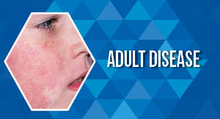
- Track 24-1Nutrition in adults
- Track 24-2Physical activity or regular exercise
- Track 24-3Regular health check up
- Track 24-4Smoking and cessation
- Track 24-5Alcohol consumption
- Track 24-6Sleep and medical health conditions
Once a demonstrative opinion has been achieved then primary care provider proposes plan for administration, which will include treatment plan as well as plan for follow up given by doctor. From that point onwards, other than patient's condition treatment, the doctor can educate patient about aetiology, progression, prognosis, other outcomes, and possible treatments of her or his ailments, as well as providing an advice for maintaining health.
The proposed treatment plan may incorporate the treatment and follow-up consultations and tests to screen condition and the advancement of the treatment, if necessary, as a rule as indicated by therapeutic rules given by restorative field on the treatment of the specific disease.
- Track 25-1Hypertension
- Track 25-2Diabetes
- Track 25-3Heart diseases
- Track 25-4Neurological diseases
- Track 25-5Kidney diseases
- Track 25-6Arthritis
- Track 25-7Skin diseases
- Track 25-8Cancer
- Track 25-9Infections
- Track 25-10Pulmonary disease
The process of determining the disease or condition is termed as internal diagnosis. The diagnosis deals with the explanation of the signs and symptoms of the diseases. It is sometimes often implicit to diagnose with medical context. Information is typically collected from the history and physical examination of the person seeking medical care for proper diagnosis. One or more diagnostic procedures, such as diagnostic tests, are also done during this process are most often used. Diagnosis is challenging, because many signs and the symptoms are nonspecific.
Some examples include the redness of the skin (scientifically known as erythema) which is a sign of many disorders and thus doesn't directly depicts specialist what is wrong. Thus differential diagnosis, in which several possible explanations are compared and contrasted, must be performed. This includes the connection of various pieces of information pursued by the acknowledgement and differentiation of patterns. Diagnosis is a major component of the procedure of a physician’s visit.
- Track 26-1Diagnosis of exclusion in internal medicine
- Track 26-2Retrospective diagnosis in internal medicine
- Track 26-3Wastebasket diagnosis in internal medicine
- Track 26-4Over diagnosis in internal medicine
- Track 26-5Computer aided diagnosis in internal medicine
- Track 26-6Nursing diagnosis in internal medicine
- Track 26-7Remote diagnosis in internal medicine
- Track 26-8Self diagnosis in internal medicine
- Track 26-9Dual diagnosis in internal medicine
- Track 26-10Radiology diagnosis in internal medicine
- Track 26-11Prenatal diagnosis in internal medicine
- Track 26-12Differential diagnosis in internal medicine
- Track 26-13Admitting diagnosis in internal medicine
- Track 26-14Principal diagnosis in internal medicine
- Track 26-15Radiology diagnosis in internal medicine
- Track 26-16Laboratory diagnosis in internal medicine
- Track 26-17Clinical diagnosis in internal medicine
Hospital medicine is a type of internal medicine practice which involves the clinical focus of caring for hospitalized patients. Physicians whose primary profession focus on hospital medicine are called hospitalists and the physician who is engaged in clinical care, teaching, research, and/or leadership in the field of hospital medicine is also known as a hospitalist. Other than this core expertise they also manage the clinical problems of acutely ill, hospitalized patients, hospital medicine practitioner’s work to enhance the performance of hospitals and healthcare systems.
- Track 27-1Immunology
- Track 27-2Pediatrics
- Track 27-3Dermatology
- Track 27-4Ophthalmology
- Track 27-5Psychiatry
- Track 27-6Haematology
- Track 27-7Orthopaedics
- Track 27-8Oncology
- Track 27-9Gynaecology/Obstetrics
- Track 27-10Nephrology
- Track 27-11Cardiology
- Track 27-12Rheumatology
- Track 27-13Critical Care
- Track 27-14Pulmonology
- Track 27-15Infectious Diseases
- Track 27-16Gastroenterology
- Track 27-17Geriatric Medicine
- Track 27-18Endocrinology
- Track 27-19Neurology
